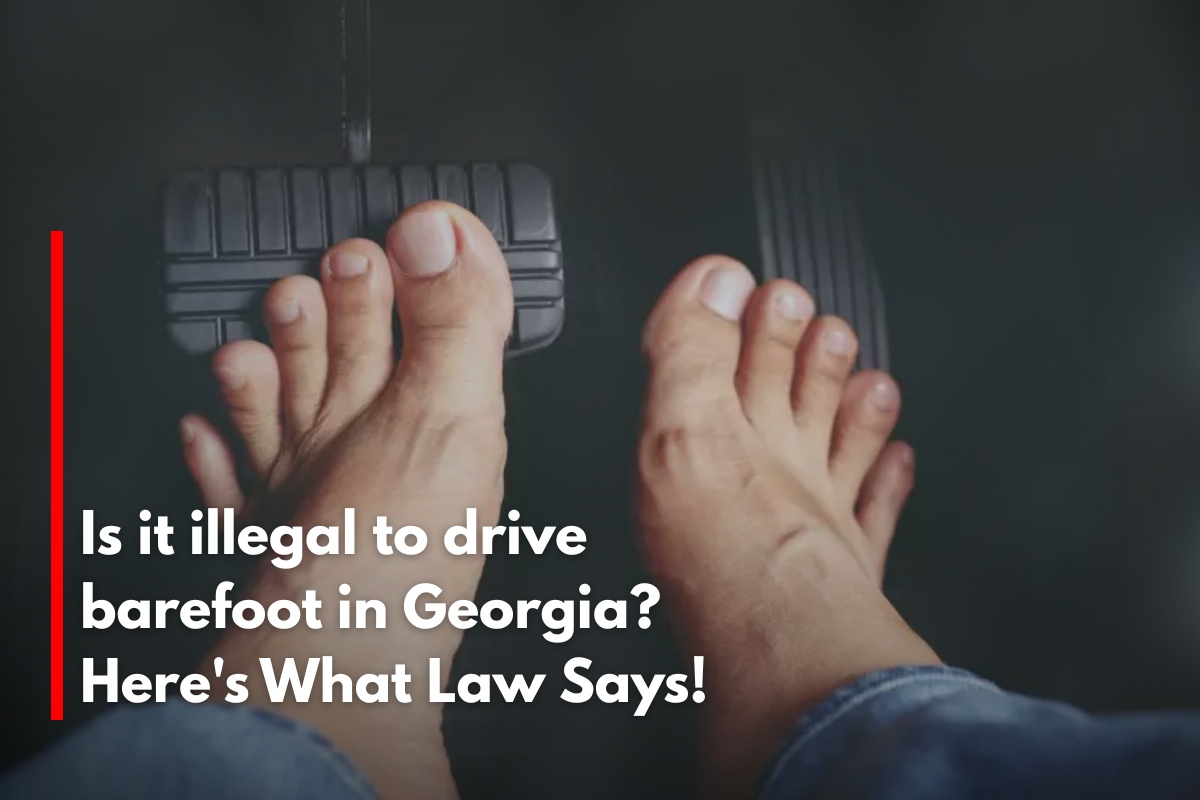Many drivers have heard the old rumor that driving barefoot is illegal in Georgia, but is there any truth to it? If you enjoy the sense of freedom that comes from slipping off your shoes behind the wheel, you might be wondering if you’re breaking the law. Here’s everything you need to know about Georgia’s stance on barefoot driving, the myths, the reality, and what the state law truly says.
The Law: Barefoot Driving Is Legal
It is not illegal to drive a car barefoot in Georgia. There is no provision in state law requiring ordinary drivers to wear shoes while operating standard vehicles such as cars, sedans, or trucks. This common misconception—that going shoeless behind the wheel is forbidden—is simply a myth. In fact, driving barefoot is legal in all 50 states, not just Georgia.
“There is no state law requiring ordinary drivers to wear shoes while operating a standard vehicle.”
Georgia’s Department of Driver Services does not prohibit driving without shoes, and law enforcement officials throughout the state have publicly confirmed that you can’t be ticketed simply for being shoeless in your car.
Exceptions: Motorcycles and Specialty Vehicles
The one major exception is motorcycles. Georgia law, under O.C.G.A. §40-6-311(e), specifically requires footwear for any person operating or riding on a motorcycle—meaning riding barefoot on a motorcycle is illegal. Unlike car drivers, motorcyclists must wear shoes; socks alone don’t qualify as proper footwear.
Safety Concerns and Myths
While driving barefoot is legal, it is not always considered the safest option. Here are some points to keep in mind:
Traction Risks: Bare feet can be more likely to slip off the pedals, especially if they are sweaty or wet. Shoes generally offer better grip, reducing the odds of an accidental slip.
Injury Risk: If you were in an accident, having bare feet would leave you more vulnerable to injury from broken glass or debris when exiting your car.
Better Than Bad Footwear: Some experts argue driving barefoot may be safer than driving in loose flip-flops, high heels, or shoes likely to get caught under a pedal. Such footwear can hinder your ability to control the car, posing a different set of risks.
Legal Liability in Case of an Accident
Even though you won’t be cited just for driving barefoot, if being barefoot contributed to a collision or was seen as making your driving unsafe, you could face charges such as “failure to exercise due care” or reckless driving. If an accident investigation finds your lack of proper footwear played a role, you might become partially liable under Georgia’s negligence laws, which can reduce your compensation in case of a claim.
Guidance from Law Enforcement
Georgia police departments and legal experts recommend using good judgment. Their advice:
If driving barefoot feels comfortable and doesn’t interfere with operating the vehicle, it’s allowed and legal.
Keep a pair of secure, driving-friendly shoes in your car for situations where going barefoot might feel unsafe.
Avoid driving barefoot in hazardous conditions, such as during rain or on long trips.
In summary:
Driving barefoot in Georgia is legal for car drivers.
Shoes are required for motorcyclists.
While it’s legal, drivers should be aware of the possible traction, injury, and liability risks.
Practicing common sense and prioritizing safety—whether you’re shoeless or not—is always the best rule of the road.
The bottom line: Feel free to wiggle your toes while driving in Georgia, but drive with caution and comfort in mind.
Sources
[1] https://www.bourne.law/blog/barefoot-driving/
[2] https://www.hasnerlaw.com/blog/is-it-legal-to-drive-barefoot-in-atlanta/
[3] https://hawklawgroup.com/blog/is-it-legal-to-drive-barefoot-in-georgia/
[4] https://jewkesfirm.com/blog/10-driving-laws-in-georgia-that-may-surprise-you/
[5] https://www.yahoo.com/news/illegal-drive-barefoot-georgia-see-080349633.html











